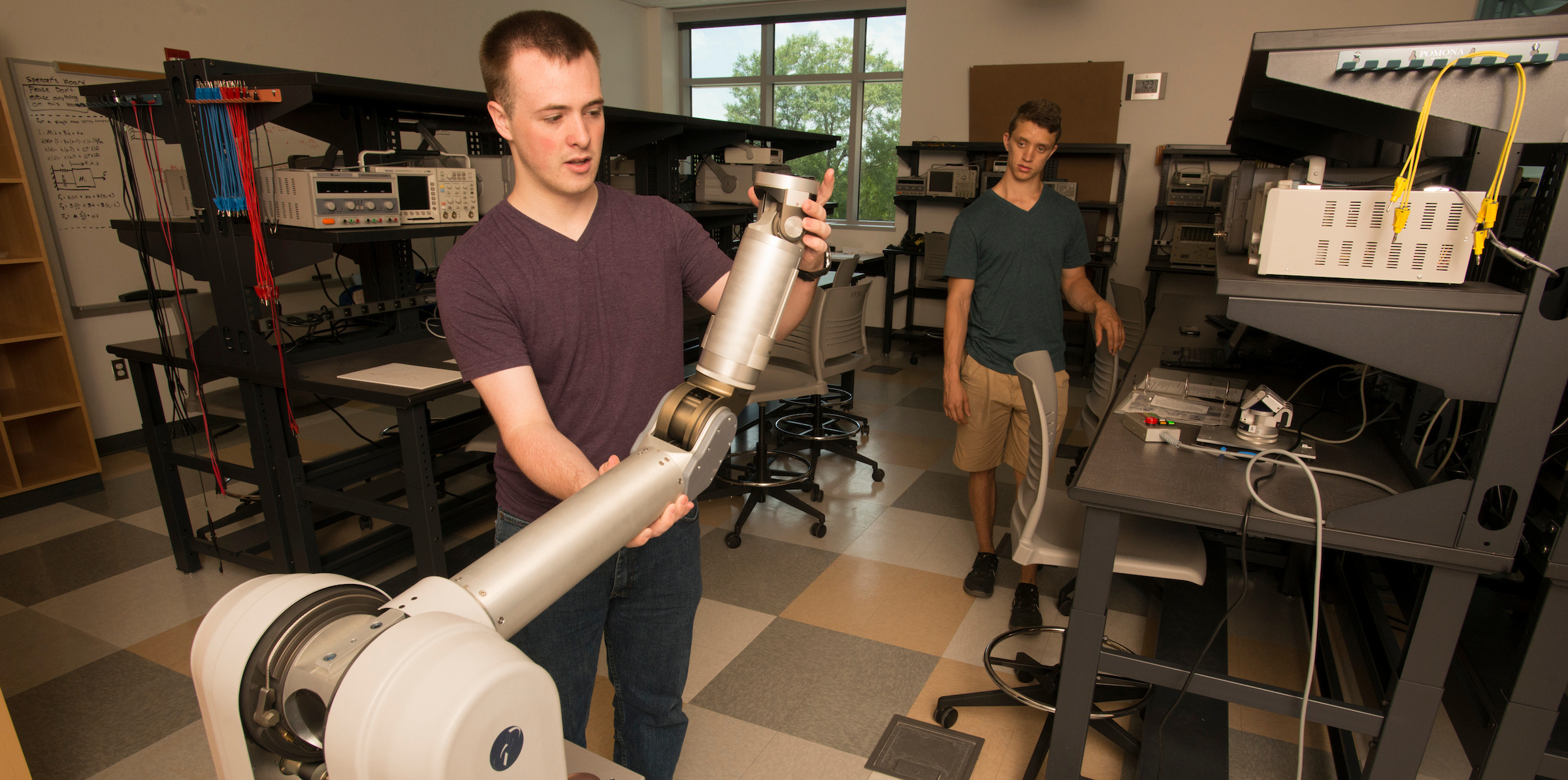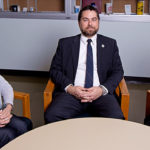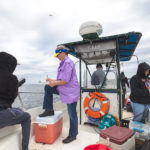Human-Robot Interaction Research Provides Invaluable Experience
Pensacola – Spencer Lash, a senior studying electrical engineering, spent his summer in the lab modeling, adjusting, testing and readjusting a robotic arm – trying to understand the causes of instability once the robot physically interacts with humans and making the robot as stable as he could.

“It was hard because there were electrical engineering and robotic theories that I had to learn because I didn’t know them yet,” Lash said. “But it was also fun because you are potentially doing something that no one has ever done before.”
He was one of about 50 students participating in the Summer Undergraduate Research Program through the Office of Undergraduate Research and the Hal Marcus College of Science and Engineering. Lash worked with Dr. Oscar Chuy, assistant professor of engineering, on a project to analyze the stability of a robotic arm interacting with a human. The results of the project could benefit power assist systems and assistive devices such as robotic walkers and pushed wheelchairs.
Though Lash spent plenty of time in the lab, he also reviewed literature on robotics and electrical engineering. One of the many things Lash discovered while he worked with Chuy is that he likes research.
“I like robotics and the idea that you are trying to get a machine to do something as well as its human counterpart,” Lash said.
Lash also realized how integral research is to many fields.
“Whether it is done by the government or schools or a corporation or some guy in his shed in his back yard, nothing new is going to happen without research,” Lash said.
Lash also said that participating in the summer research program helped him improve his writing skills through sheer use. He had to write a proposal to be accepted. He had to create a poster for the summer research symposium, and he has a final report about the stability analysis of a robotic arm due in early April.
“I was lucky to have this research experience as an undergraduate,” Lash said. “The whole experience can only help me in the future. Whatever research opportunities become available in the future, I will try to do; you never know what you’re going to learn, and it’s fun.”
When he graduates, Lash plans to enter the U.S. Air Force, and because of his summer experience, he wants to pursue a career in research.
“I’m really ultimately interested in exoskeletons and prosthetic limbs because they can help people with practical, day-to-day activities,” Lash said.
Field Work is a monthly series that highlights research and other scholarly activities being conducted by UWF undergraduate students.



